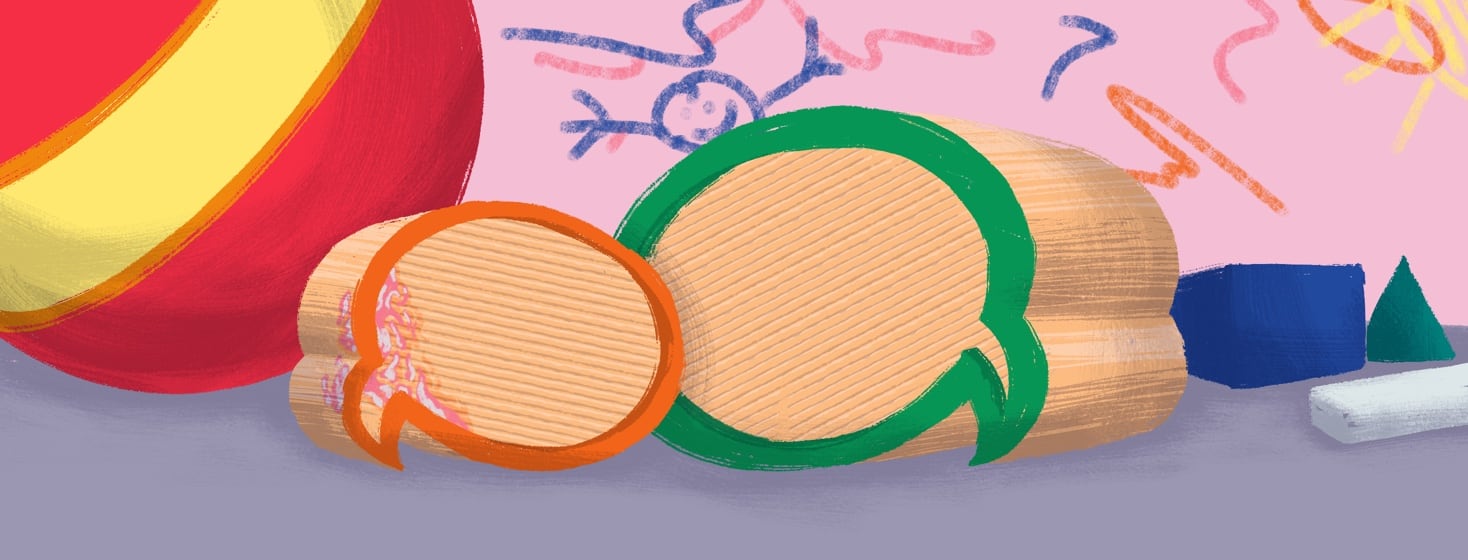How to Support a Young Child With Psoriasis
I was diagnosed with psoriasis when I was around five years old. I don’t recall how old I was when I started lying to my mom about how my skin felt, but I think I was about eight or nine.
My skin was very bad when I was little. I was hospitalized for a number of weeks when I was six. As I got older I started to become very aware of how my psoriasis affected my parents. I could see the emotions on my mother's face when I laid in bed at night crying because my skin was burning.
Why did I lie about my psoriasis?
I learned after a while that after applying the cream, there was nothing else she could do. So I stopped telling her when I itched and burned at night. The creams made my skin feel worse, so I wasn’t missing out by not telling her, but I did spare her from what I imagine were a complex mix of negative emotions.
Now I have children that are the same age when I was diagnosed. I never want my children to feel they have to hide their feelings from me (though I’m sure my nine-year-old is already).
What can we do to support our children with psoriasis?
I chatted with a child psychologist about this. Having an open and honest relationship with a parent is such a critical component to support a child with a chronic condition.
This is something I would change if I could go back and talk to my young self. "Talk to your mom! She cant help if you shut her out!" Ah, the wisdom we gain with age.
So what can we do to help? I've listed a few tips below.
Validate their feelings
It’s so easy as a parent to jump in and try to fix everything, but often children need to know their feelings are valid. So instead of jumping in feet first, listen to what your child is saying.
Use their words to help them understand that their feelings have been acknowledged and that they are ok. For example "I hear you when you say that you felt angry when John called you names today. That was not very nice. It is ok for you to feel angry."
Watch for behavioral cues
When children have had a bad day at school, or have something on their mind, their behavior often changes at home. I have seen this most often as passive-aggressive comments to siblings and losing their temper easily with my own children.
When the cause has been over the behavior of other children at school, stomachaches at bedtime and other signs of anxiety can appear as they start thinking about the next day, and hostility about going to school in the morning.
When you see this, stop what you're doing and take your child somewhere quiet, where they feel safe and encourage them to unload.
Teach your children about "the cup"
Young children can sometimes find it hard to describe their feelings and may struggle to explain why they are upset. This is where the cup analogy can help. Even better if you can physically demonstrate this the first time you teach this strategy to your child.
The idea is this: your child is a vessel. Like a cup. If too much happens in one day the cup gets full and overflows and that is when they get really sad, angry, lash out or withdraw. It reiterates that this behavior is ok and normal.
To demonstrate, take a jug of juice and a cup. Explain that the beginning of the day the cup is empty. Then something happens, for example, you leave your homework on the bus, pour juice into the cup. A kid at school is mean, more juice into the cup.
When the juice overflows, this represents our emotions overflowing and the feeling that we cannot cope. Now you have a great conversation starter. What happened to make your cup fill up? Is there anything I can do to help stop your cup filling up tomorrow?
The importance of supporting children
Just like adults, children need to develop strategies for managing their emotions, so that they can build social-emotional skills. When children are more socially and emotionally aware and skilled, they can more effectively navigate relationships, calm down and problem solve when challenges arise.
Do you have any strategies I haven’t thought of? I would love to hear them in the comments.

Join the conversation